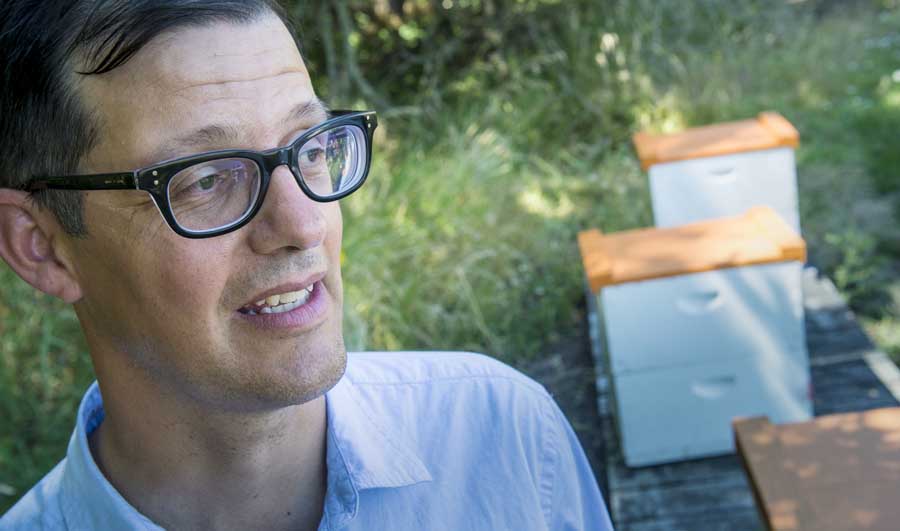
Andony Melathopoulos, Extension pollinator specialist, watches honey bees at OSU’s Oak Creek Center for Urban Horticulture. Courtesy Lynn Ketchum/Oregon State University.
Oregon State University has hired an expert on bee pollinators to fill a new extension position focused on improving the health of honey bees and other pollinating insects.
Andony Melathopoulos comes to OSU from a post-doctoral position in pollination ecology at the University of Calgary in Alberta, Canada.
Before earning his doctorate at Dalhousie University in Halifax, Nova Scotia, Melathopoulos spent 13 years in Alberta, working on honey bee pests and diseases for Canada’s national honey bee research center.
He also studied lesser-known species, including the alfalfa leafcutter bee and wild bees in lowbush blueberry fields in Atlantic Canada and Maine.
Melathopoulos is working with the Oregon Department of Agriculture to roll out a statewide pollinator education and safety plan in the next few months.
He is also forging ties with Oregon’s commercial beekeepers, farmers, pesticide applicators, urban parks departments and others who play a role in keeping pollinators healthy.
“We want to give people the tools to keep Oregon pollinator-friendly,” Melathopoulos said. “If we do our job right, protecting pollinators will merge seamlessly with people’s daily life and work.”
He joins two other bee health experts recently hired at OSU’s College of Agricultural Sciences: Hannah Lucas and Jared Jorgensen.
Lucas, who started her job last November, studies bee parasites and diseases and is assisting with the expansion of OSU Honey Bee Lab’s diagnostic services for beekeepers. Jorgensen, who started in March, also helps with bee health diagnostics and conducts field studies in partnership with commercial beekeepers.
The three positions were made possible by a $14 million investment in OSU research and Extension by the 2015 Oregon Legislature.






Who can I talk to about a decades-old solitary ground bee colony that exists in an area where I need to level my backyard? Will the colony survive if i add 3-6 inches of soil on top of their nesting area?